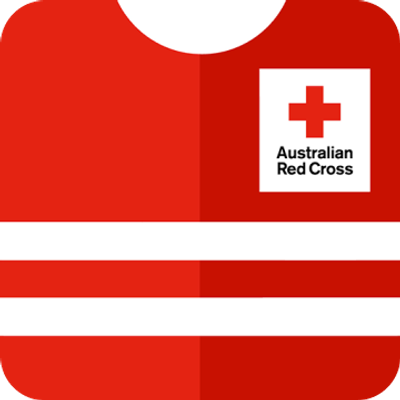Coping with natural disasters and other unexpected extreme weather events
When you’ve experienced something traumatic, like a natural disaster, one of the best things you can do is recognise what you don’t need to do.
- You don't need to ...
- Have all the answers
- Handle everything on your own
- Suffer in silence.
We know those three things can be easier said than done, but it really is important that you show yourself some compassion and remind yourself that you’re doing the best you can.
Remember, natural disasters rarely just impact one area of your life. You can feel the impacts in your relationships, communities, professional life, finances, and more.
This is why it’s important to acknowledge what you’ve been through and give yourself permission to take care of your own mental health and wellbeing before anything or anyone else.
On this page, you’ll find information on:
- What to do after a natural disaster
- Tips for managing stress
- Healthy ways to cope
- Resources for helping kids cope.
Scroll down to learn more.
What to do after a natural disaster
In the days, weeks, and months following a natural disaster, it’s common to feel overwhelmed and uncertain about the future.
This is because it's easy to find yourself in fight, flight or freeze mode when you experience stressful or traumatic events. While these are normal ways to respond, they aren’t always helpful.
For example, in ‘fight mode’, you might overload your to-do list with unimportant tasks because it gives you a false sense of control. In ‘flight’ or ‘freeze mode’, you might avoid your to-do list or not know what to do altogether.
So, first things first …
- Acknowledge what you've been through
By taking time to pause and reflect on how you’ve been impacted, you’ll be able to think more clearly about what you actually need to move forward.
In particular, it’s helpful to reflect on how the event may have impacted your self-esteem. Self-esteem and mental health are closely linked because it’s where we get the resilience to push through challenging times. You may find these journaling prompts helpful.
- Take as much as you can off your plate
- Prioritise self-care
- Talk about your experience
- Make a plan for how you’ll know if things are becoming too much
- Reach out for support
Tips for managing stress
Even when there hasn’t been a natural disaster, stressors like money, work, and kids can feel overwhelming.
While stress is a natural and necessary way your body responds to situations it perceives as threatening or dangerous, it can become a problem if it sticks around too long or becomes unmanageable.
If possible, try to minimise stress in every area of your life. This is particularly important if you were already dealing with a big life event (like the loss of a loved one, relationship breakdown, chronic illness, or previous natural disaster) before the event.
Ways you can manage stress:
- Lean on support services and accept help from others
- Ask for extensions on upcoming deadlines
- Request a reduced workload
- Avoid people who upset or emotionally drain you
- Go for a gentle walk instead of a long run
- Create and stick to routines
- Limit the amount of media coverage you watch
- Do a digital detox
- Choose uplifting movies/series/podcasts instead of distressing topics
- End a problematic or abusive relationship.
Healthy ways to cope
When it comes to managing stress, it’s helpful to have a few go-to techniques and strategies that you can use when you’re starting to feel overwhelmed.
Keep in mind that we’re all different so what works for someone else might not work for you and that’s okay. The key is finding out what you can do to feel calm and safe.
Below, we’ve listed a few ideas you can try.
Create a self-care box
When you’re distressed or overwhelmed, it can be difficult to think about how you’re going to calm down in the moment. By having a pre-prepared self-care box on hand, you can make sure it includes things that can help you relax.
For example, you could include a list of guided breathing and meditation tracks that help you sleep, a notebook to journal your thoughts and feelings, or a bag of herbal tea.
Practise mindfulness and meditation
If you’re finding it hard to stay focused during the day or are struggling to sleep, you may want to try practising mindfulness and meditation.
Mindfulness is the practice of paying attention to the present moment with an attitude of curiosity, openness, and non-judgement while meditation is the practice of training your brain to focus on the present moment.
To learn more and get started, you can read our introduction to meditation and getting started with mindfulness articles or download a mindfulness and meditation app like Calm or Smiling Mind.
Use a grounding technique
Similar to mindfulness, grounding techniques can help shift your attention away from distressing feelings and redirect it to what is happening right now.
Grounding can be particularly helpful if you’re experiencing trauma as it can allow you to move away from negative thoughts or flashbacks.
There are several different grounding techniques, but a great one to start with is the five senses check-in because it can be helpful in decreasing the intensity of your feelings.

Resources for helping kids cope
While kids are incredibly resilient and tend to adjust to big changes quite quickly, they respond differently to stress and trauma.
For example, while you might be able to recognise and say you’re angry because you haven’t been able to have a hot shower in two weeks, a child might appear happy but revert to babyish behaviours like thumbsucking or bedwetting. While these behaviours can feel frustrating because they're another factor making things hard for you, try to be patient and understanding with your children.
In most cases, a child will turn to you or another adult for guidance on how to feel. As a result, the way you react to a natural disaster can impact how your child will cope and recover.
Tips for helping children cope after a natural disaster
- Take care of your own mental and physical health. If you’re not eating, sleeping, and functioning well, your child will pick up on it. Just like when flying, you must put on your own oxygen mask before helping others.
- Stick to routines, especially around meals and bedtime. Children thrive on consistency so the sooner they can return to school and activities, the better.
- Help them understand what happened. It’s okay to talk about the event and your feelings in an appropriate way. It’s also important that you encourage your child to talk about their feelings. Keep in mind that they might not feel the same way you do.
For more tips on how to help kids cope with trauma, click here.
If you’d like further advice on how to talk to your child about a natural disaster, you can contact Kids Helpline.
Kids Helpline is a free and confidential 24/7 online and phone counselling service for kids, teens, young people and the adults who care about them.
You can also save or download the following Australian Red Cross resources for parents and caregivers:
- Tips for talking to children before an emergency
- Get ready activity book (ages 5-8)
- Helping children and young people cope with crisis
- After an emergency activity book (ages 5-8)
- Parenting: Coping with crisis
Learn more at australianredcross.org.au.
Click here to download, save, or print our natural disasters fact sheet.












